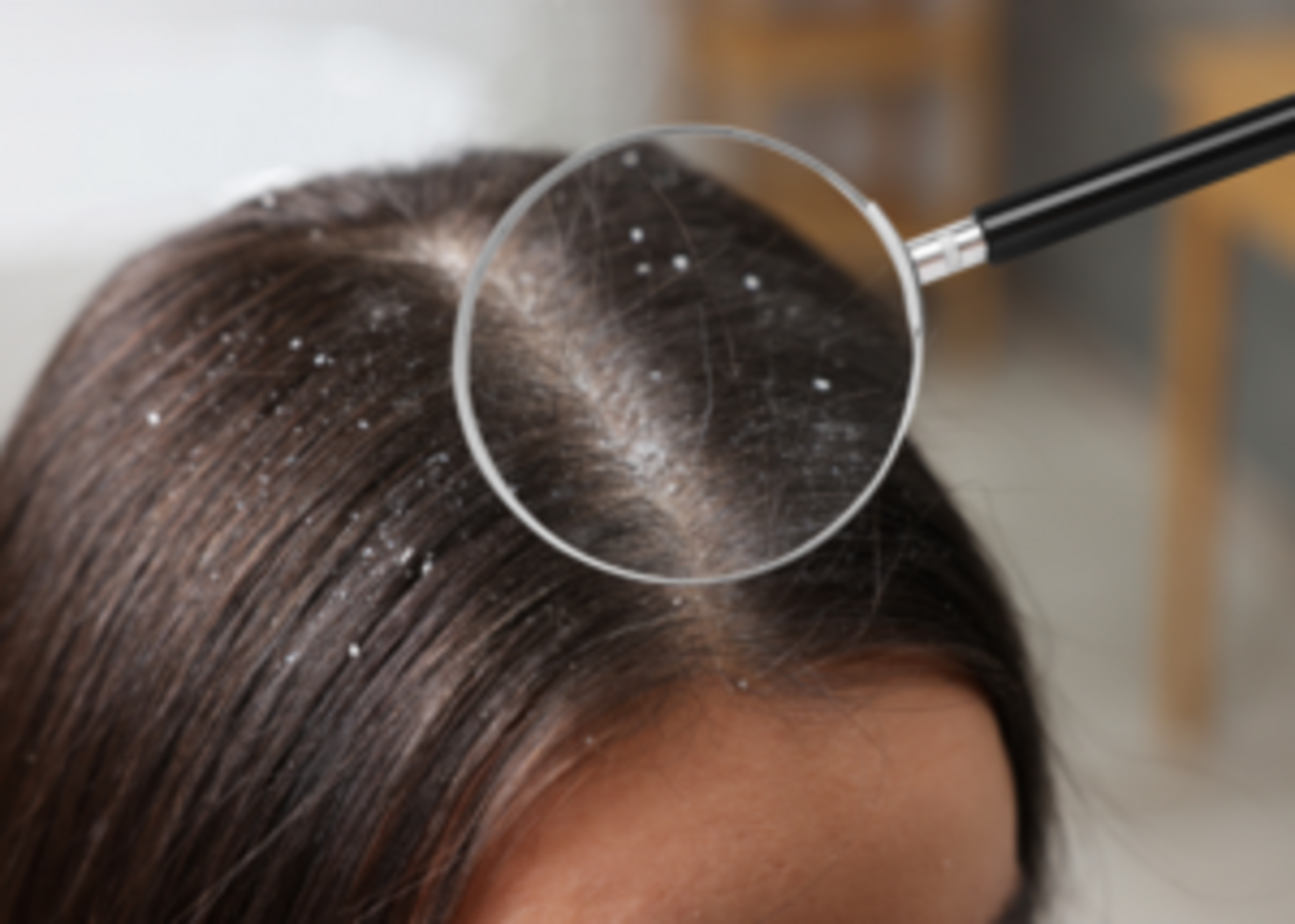Dandruff is a common scalp condition that affects millions of people worldwide. It causes the scalp to flake, which can lead to embarrassment and discomfort. As a consultant cosmetologist and dermatologist based in Katraj Ambegaon, Pune, Dr. Sandhya Hippargekar helps patients understand the causes of dandruff, its symptoms, and how to treat and prevent it.
What is Dandruff?
Dandruff refers to the shedding of dead skin cells from the scalp, often accompanied by itching. It can vary in severity, from mild flaking to more noticeable and persistent flakes that fall onto the shoulders. While dandruff is not a serious health condition, it can lead to self-consciousness and discomfort.
Dandruff is commonly mistaken for dry scalp, but the two conditions have different causes. A dry scalp is often the result of environmental factors like dry air or harsh hair care products, whereas dandruff is usually linked to a variety of scalp conditions, including seborrheic dermatitis, fungal infections, or scalp sensitivity.
Causes of Dandruff
Several factors contribute to dandruff, and understanding these can help in its prevention and treatment:
- Malassezia Fungus: The most common cause of dandruff is the overgrowth of a yeast-like fungus called Malassezia. This fungus naturally exists on the scalp but can multiply when there is an imbalance, leading to irritation and excessive skin cell shedding.
- Seborrheic Dermatitis: This is a more severe form of dandruff, characterized by greasy, yellowish scales that appear on the scalp and other oily areas of the body, such as the eyebrows and chest. It can be triggered by factors like stress, hormones, or weather changes.
- Dry Skin: Dry skin is another common cause of dandruff, especially in colder months. The flakes tend to be smaller and less oily compared to those caused by Malassezia or seborrheic dermatitis.
- Hair Care Products: Some hair products, such as shampoos, conditioners, or hair gels, can cause scalp irritation or allergic reactions, resulting in dandruff. Overuse of harsh chemical products can also strip the scalp of its natural oils, leading to dryness and flaking.
- Diet and Lifestyle: A poor diet lacking in essential nutrients, like zinc, B vitamins, and healthy fats, can contribute to dandruff. Additionally, stress and lack of sleep can weaken the immune system, making the scalp more prone to irritation and fungal growth.
- Other Skin Conditions: Dandruff can also be linked to skin conditions like eczema, psoriasis, or allergic reactions. These conditions can affect the scalp, causing it to flake and itch.
Symptoms of Dandruff
The main symptom of dandruff is the presence of white or yellowish flakes on the scalp and in the hair. Other common symptoms include:
- Itching or irritation on the scalp
- Red or inflamed patches on the scalp
- A dry or oily scalp
- Flakes visible on clothing, especially dark-colored shirts
Treatment Options for Dandruff
Dandruff can usually be controlled with the right treatment. Dr. Sandhya Hippargekar emphasizes the importance of using the right shampoo and incorporating proper scalp care routines to manage dandruff effectively. Some common treatment options include:
- Anti-Dandruff Shampoos: Shampoos containing active ingredients such as zinc pyrithione, selenium sulfide, coal tar, or ketoconazole are effective at controlling dandruff. These ingredients help fight the Malassezia fungus, reduce scalp inflammation, and regulate the production of oils.
- Tea Tree Oil: Known for its antifungal properties, tea tree oil can help reduce the overgrowth of Malassezia and soothe scalp irritation. It can be diluted and applied to the scalp, or you can use a shampoo that contains tea tree oil.
- Coconut Oil: Coconut oil has moisturizing and antifungal properties that can help hydrate a dry scalp and reduce flakes. Massaging warm coconut oil into the scalp can help nourish the skin and reduce irritation.
- Prescription Medications: In cases of severe dandruff or seborrheic dermatitis, a dermatologist may prescribe topical corticosteroids or antifungal treatments to reduce inflammation and control fungal growth.
- Scalp Care Routine: It’s essential to maintain a healthy scalp routine. Dr. Hippargekar recommends regular hair washing with mild shampoos, avoiding hot water, and gently massaging the scalp to remove dead skin cells.
- Dietary Adjustments: A balanced diet rich in zinc, B vitamins, and omega-3 fatty acids can help improve scalp health and reduce dandruff. Staying hydrated also plays a crucial role in keeping the scalp moisturized.
Preventing Dandruff
While dandruff can be persistent, there are several steps you can take to prevent its recurrence:
- Avoid Scratching: Scratching the scalp can lead to further irritation and may worsen dandruff. Instead, use a soothing scalp treatment or anti-dandruff shampoo to reduce itching.
- Limit Stress: Managing stress can help reduce the severity of dandruff, especially if it’s linked to seborrheic dermatitis.
- Wash Hair Regularly: Regular washing removes excess oil, dead skin cells, and buildup of hair products, which can contribute to dandruff.
- Choose Gentle Hair Care Products: Opt for shampoos and conditioners that are free from harsh chemicals, sulfates, and alcohol to prevent further irritation.
Dandruff is a manageable condition with the right approach. Whether it’s caused by a fungal infection, dry scalp, or another underlying condition, treatment options are available to help reduce symptoms and restore scalp health. If you’re struggling with persistent dandruff or scalp irritation, it’s important to consult a dermatologist like Dr. Sandhya Hippargekar. She can provide personalized advice and recommend the most effective treatments to help you regain a healthy, flake-free scalp.
Read More:
Fungal Infections: Causes and Treatments | Dr. Sandhya Hippargekar
